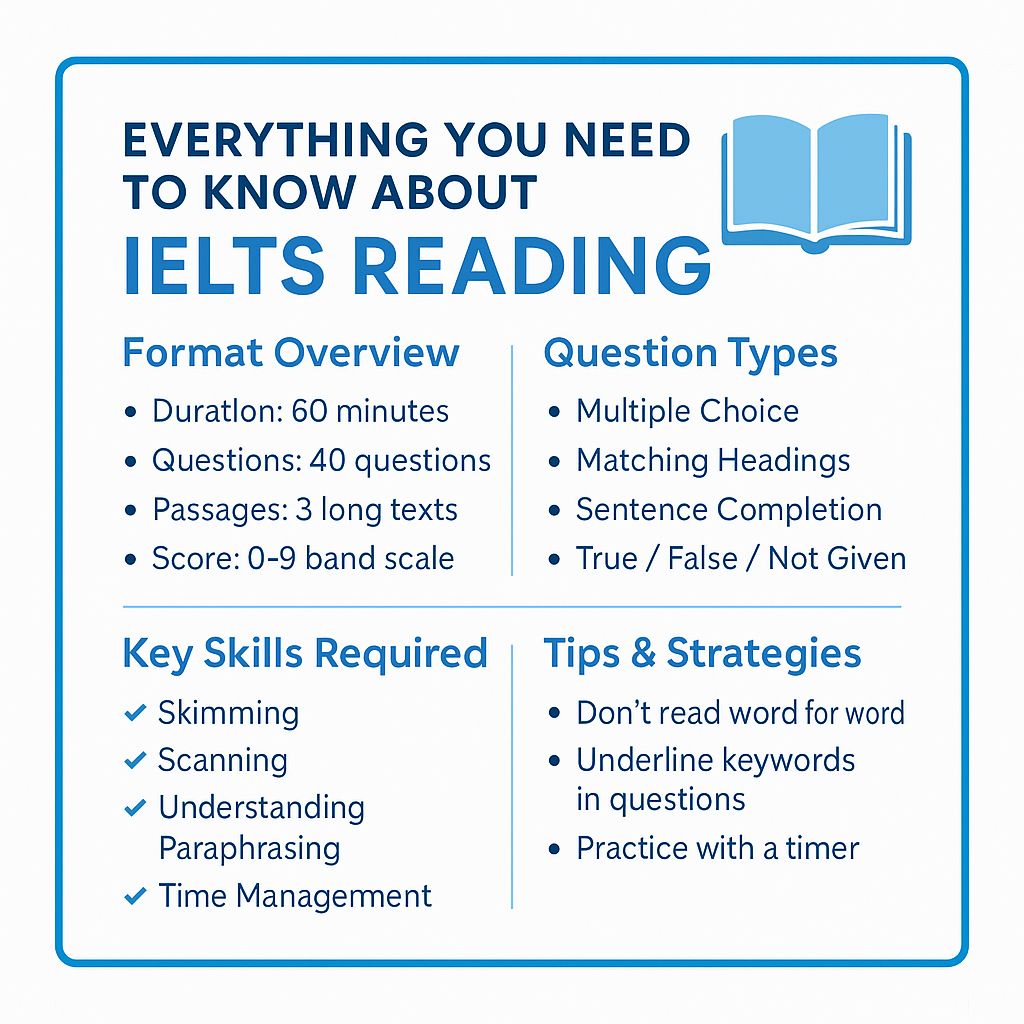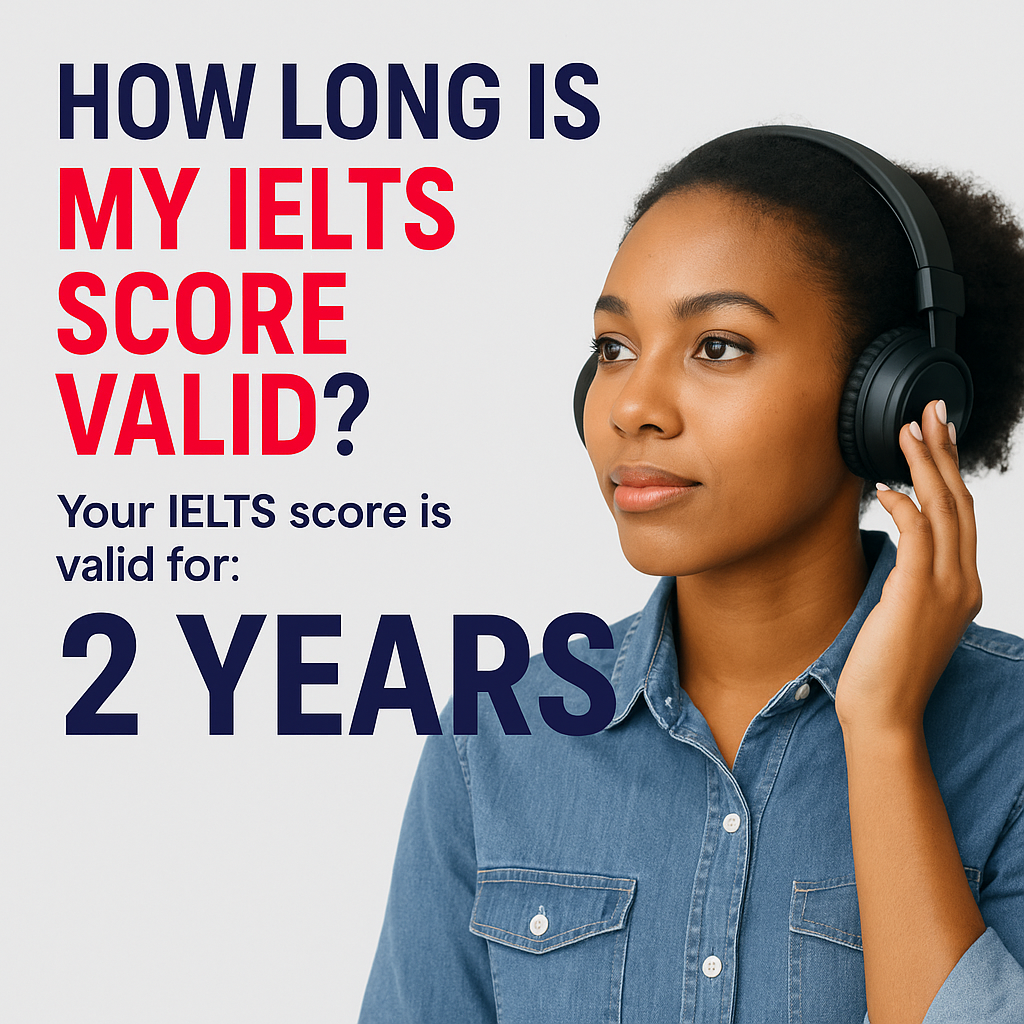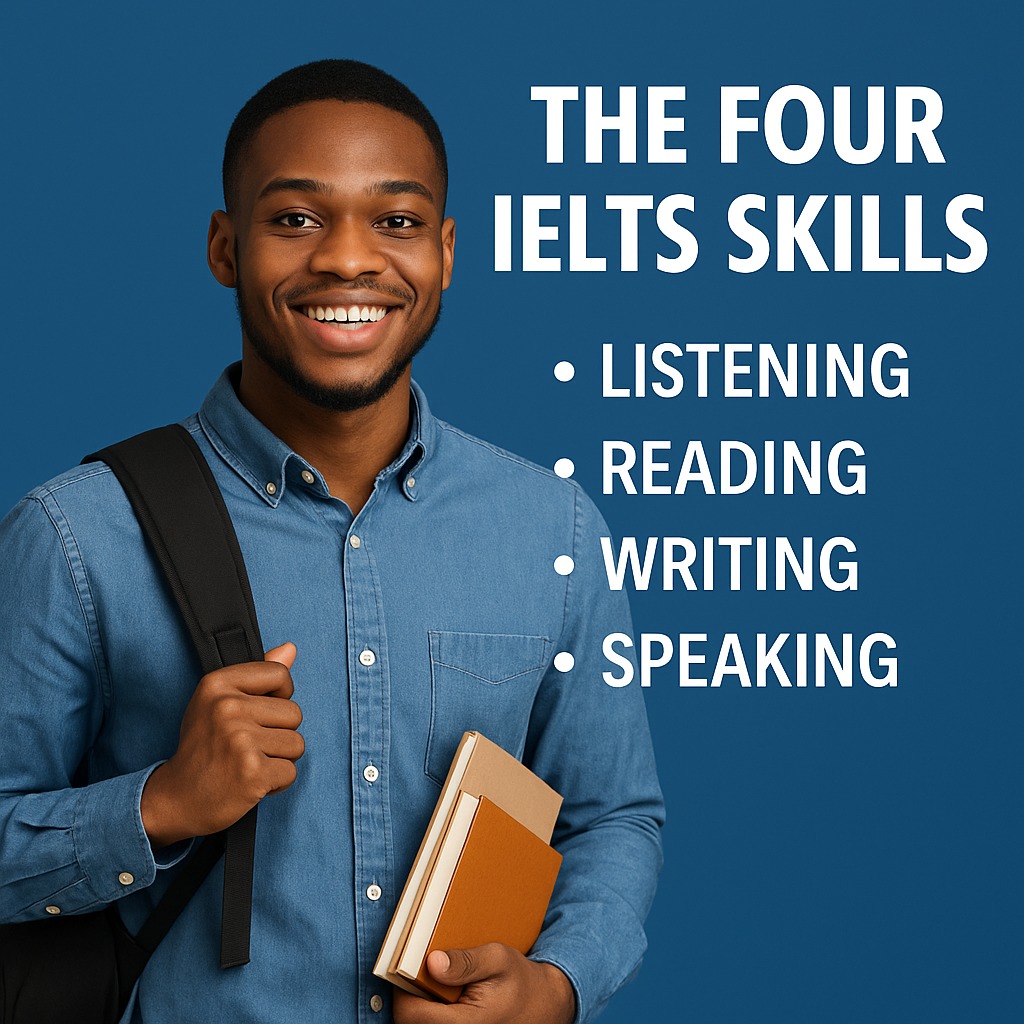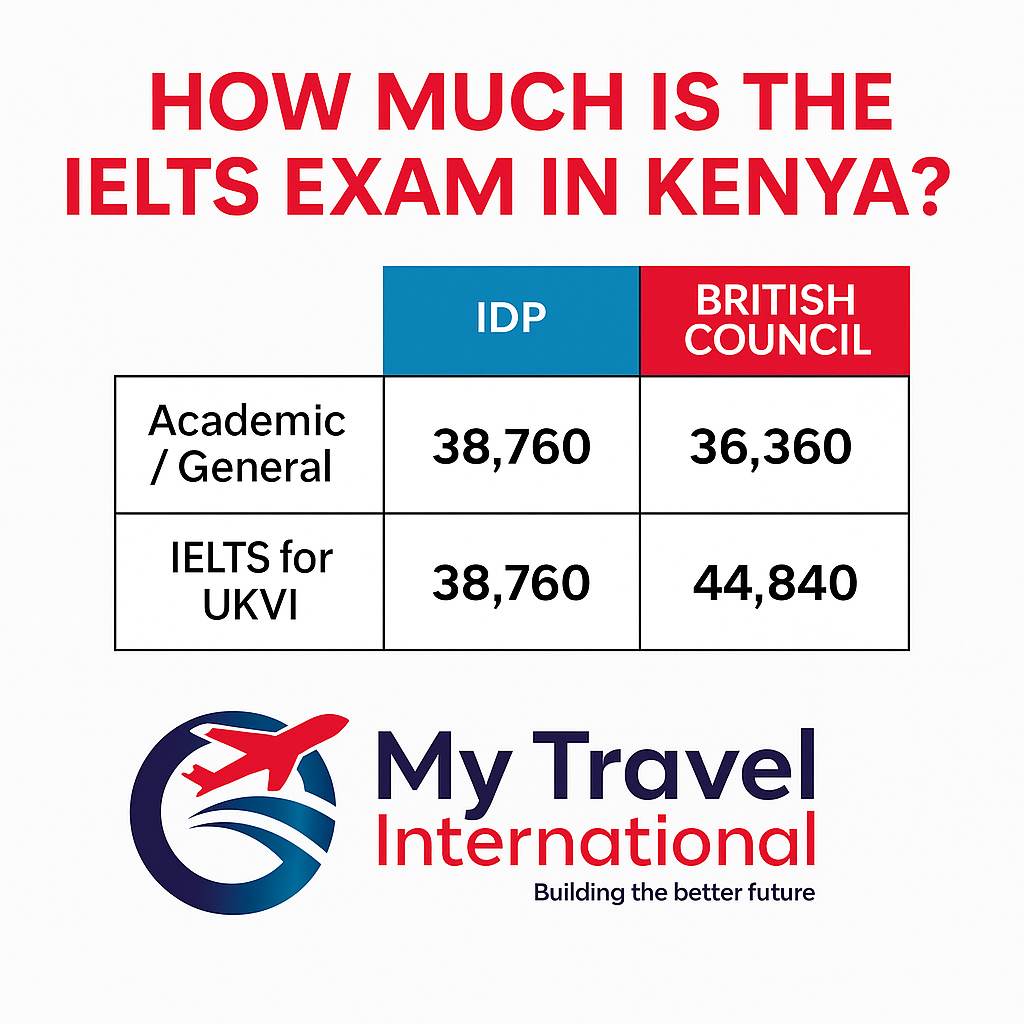1. Format Overview
-
Duration: 60 minutes (no extra time for transferring answers).
-
Questions: 40 questions.
-
Passages: 3 long texts (Academic) OR a mix of texts (General Training).
-
Score: Each correct answer = 1 mark. Raw score (0–40) converted to Band score (0–9).
👉 Key Difference:
-
Academic IELTS Reading: Extracts from books, journals, magazines, newspapers, and academic sources.
-
General Training IELTS Reading: Extracts from notices, advertisements, company handbooks, official documents, newspapers.
2. Question Types
You must know them well because IELTS often repeats patterns:
-
Multiple Choice
-
True / False / Not Given
-
Yes / No / Not Given
-
Matching Headings
-
Matching Information
-
Matching Features
-
Matching Sentence Endings
-
Sentence Completion
-
Summary, Note, Table, or Flow-chart Completion
-
Diagram Label Completion
-
Short-answer Questions
3. Scoring System
-
Band 7.0 (Academic): ~30/40 correct.
-
Band 8.0: ~35/40 correct.
-
Band 9.0: 39–40/40 correct.
(General Training requires slightly more correct answers for the same band score).
4. Key Skills Required
✅ Skimming – Read quickly to understand the main idea.
✅ Scanning – Find specific information (names, dates, numbers).
✅ Understanding Paraphrasing – IELTS loves to test synonyms, not exact words.
✅ Time Management – ~20 minutes per passage.
5. Tips & Strategies
-
Don’t read word for word – focus on keywords.
-
Underline keywords in questions before looking at the passage.
-
Transfer answers directly to the answer sheet (no extra time at the end).
-
Watch out for traps:
-
True/False/Not Given is tricky → "Not Given" means the info is missing, not false.
-
Matching Headings tests your ability to find the main idea, not details.
-
-
Spelling matters – wrong spelling = wrong answer.
-
Guess if unsure – no negative marking.
6. Common Challenges
⚠️ Running out of time → Practice with a timer.
⚠️ Confusing “Not Given” vs. “False.”
⚠️ Overthinking synonyms → Trust the passage, not your assumptions.
7. Preparation Tips
-
Practice with Cambridge IELTS Books (Official).
-
Improve reading speed: 250–300 words per minute target.
-
Build vocabulary: academic words, synonyms.
-
Practice scanning with newspapers, journals, and online articles.
✅ Summary: IELTS Reading tests speed, accuracy, and comprehension. Focus on practicing under timed conditions, master paraphrasing, and learn to quickly identify answers without reading everything.



